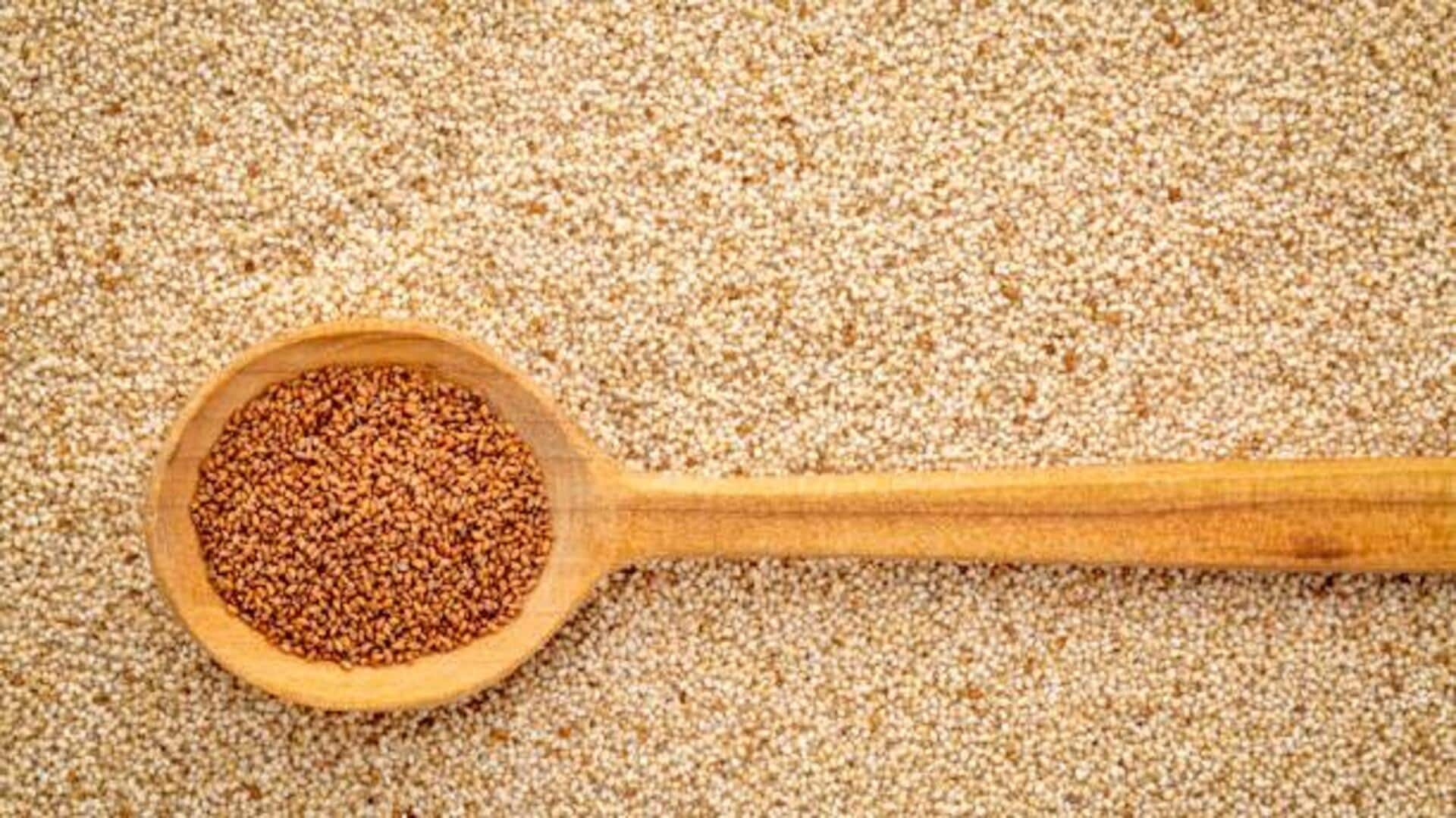
5 unique grains to boost your health
What's the story
African grains provide a rich palette of flavors and nutrition that can add value to any kitchen.
Having been grown for generations, these grains are resilient in varying climates.
Adding them to your diet not only adds diversity but also promotes sustainable agriculture.
Here are five unique African grains that can add new tastes and health benefits to your meals.
Teff
Teff: The ancient Ethiopian grain
Teff, a tiny grain native to Ethiopia, comes packed with nutrition.
It is gluten-free and is rich in protein, fiber, and minerals like iron and calcium.
Teff flour is used to make injera, a traditional Ethiopian flatbread. Its mild taste makes it great for baking or as porridge.
Including teff in your diet can help improve digestion and boost energy levels.
Sorghum
Sorghum: A versatile staple
Sorghum is among Africa's most commonly grown grains owing to its ability to thrive in arid conditions.
It is also high in antioxidants, which help in preventing oxidative stress in the body.
Sorghum can be used whole or ground into flour to bake bread or prepare porridge.
Its subtly sweet flavor complements both savory and sweet dishes, making it a great addition to any recipe.
Fonio
Fonio: The nutritious supergrain
Often dubbed as a supergrain, Fonio is also known for its impressive nutrition profile. It cooks quickly and has a light texture (couscous or quinoa).
Fonio is rich in amino acids (such as methionine and cysteine) which are essential for growth and repair of tissues.
The nutty flavor of this grain goes well with salads, stews, or even breakfast bowls.
Millet
Millet: The drought-resistant grain
Millet grows well in dry areas where other crops may not survive, making it a staple food across Africa.
It is rich in magnesium, phosphorus, manganese, and B vitamins, which are essential for bone health and metabolism.
Millet's subtle flavor enables it to be easily incorporated into soups or served as a side dish like rice or quinoa.
Amaranth
Amaranth: The protein-rich seed
Often considered a grain, amaranth is actually a seed with no gluten.
It has more protein than most grains and includes lysine (essential amino acid).
Perfect for vegetarians and vegans, amaranth provides complete nutrition when combined with legumes like beans, lentils, and peas.
This makes it an excellent source of plant-based proteins.